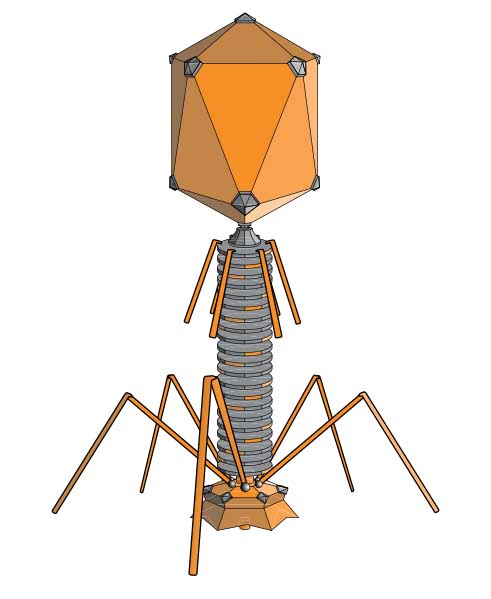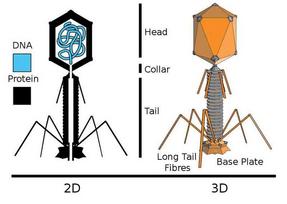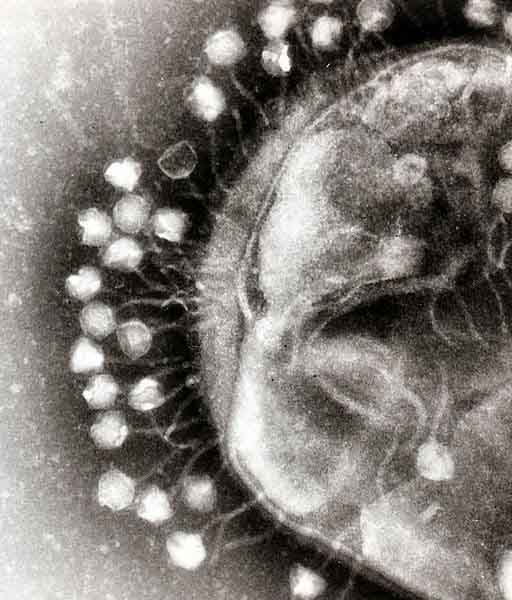 | ||||
What Is a Bacteriophage Virus?
Phage Viral Host Recognition, Lytic Replication & Lysogeny
from Science Prof Online
Did You Know that Bacteria Can Come Down with a Virus?
Bacteriophages (aka phages) are a type of virus that preys upon bacterial cells. The reproduction of these parasitic acellular particles always involves death of the infected bacterium, when the viruses burst out, lysing their prokaryotic host cell.
Article Summary: Bacteriophages are viruses that exclusively infect bacterial cells. Here's how they recognize their host bacterium and reproduce.
What Is a Bacteriophage Virus?
An electron micrograph of bacteriophages attached to a bacterial cell.
How Does a Virus Find Its Host?
Whether it is an animal virus or a phage, most viruses infect only a certain type of host. And, since viruses are non-motile (can’t move on their own), coming into contact with the host occurs purely by chance.
Viral specificity is due to the affinity between proteins on the surface of the virus and corresponding glycoproteins on the surface of the host cell. If the virus happens to land on the right type of cell, it can enter and infect.
How Does a Virus Reproduce?
Sometimes a phage will immediately take over the cell that it has infected. This is called lytic replication, a cycle which ends when the new phages burst out, killing the host bacterium.
But sometimes the viral genetic material remains hidden and inactive in the bacterial DNA, allowing the host to reproduce. Each time the infected bacterium duplicates its DNA (nucleic acid) and divides, it also creates another copy of the viral nucleic acid; a very sneaky and effective tactic for creating a huge number viruses from one initially infected bacterial cell.
Sources & Resources
- Bauman, R. (2014) Microbiology: With Diseases by Taxonomy 4th ed.. Pearson Benjamin Cummings.
- Park Talaro, K. (2008) Foundations in Microbiology. McGraw-Hill.
- Virus Structure Lecture Main Page from the Virtual Microbiology Classroom.
- Virus Life Cycle Lecture Main Page.
- Meet the Viruses Lecture Main Page.
 | ||||
You have free access to a large collection of materials used in a college-level introductory microbiology course. The Virtual Microbiology Classroom provides a wide range of free educational resources including PowerPoint Lectures, Study Guides, Review Questions and Practice Test Questions.
Page last updated: 5/2013
SCIENCE PHOTOS
SPO VIRTUAL CLASSROOMS
 | ||||||
 | ||||||
SPO is a FREE science education website. Donations are key in helping us provide this resource with fewer ads.
Please help!
(This donation link uses PayPal on a secure connection.)
Bacterophages, which look much like War of the Worlds spaceships, have proteins in their tail fibers that attach to proteins on the surface of the prokaryotic bacterial cell. After recognition and attachment to the host, the phage injects its genetic material (DNA or RNA) into the host cell.





